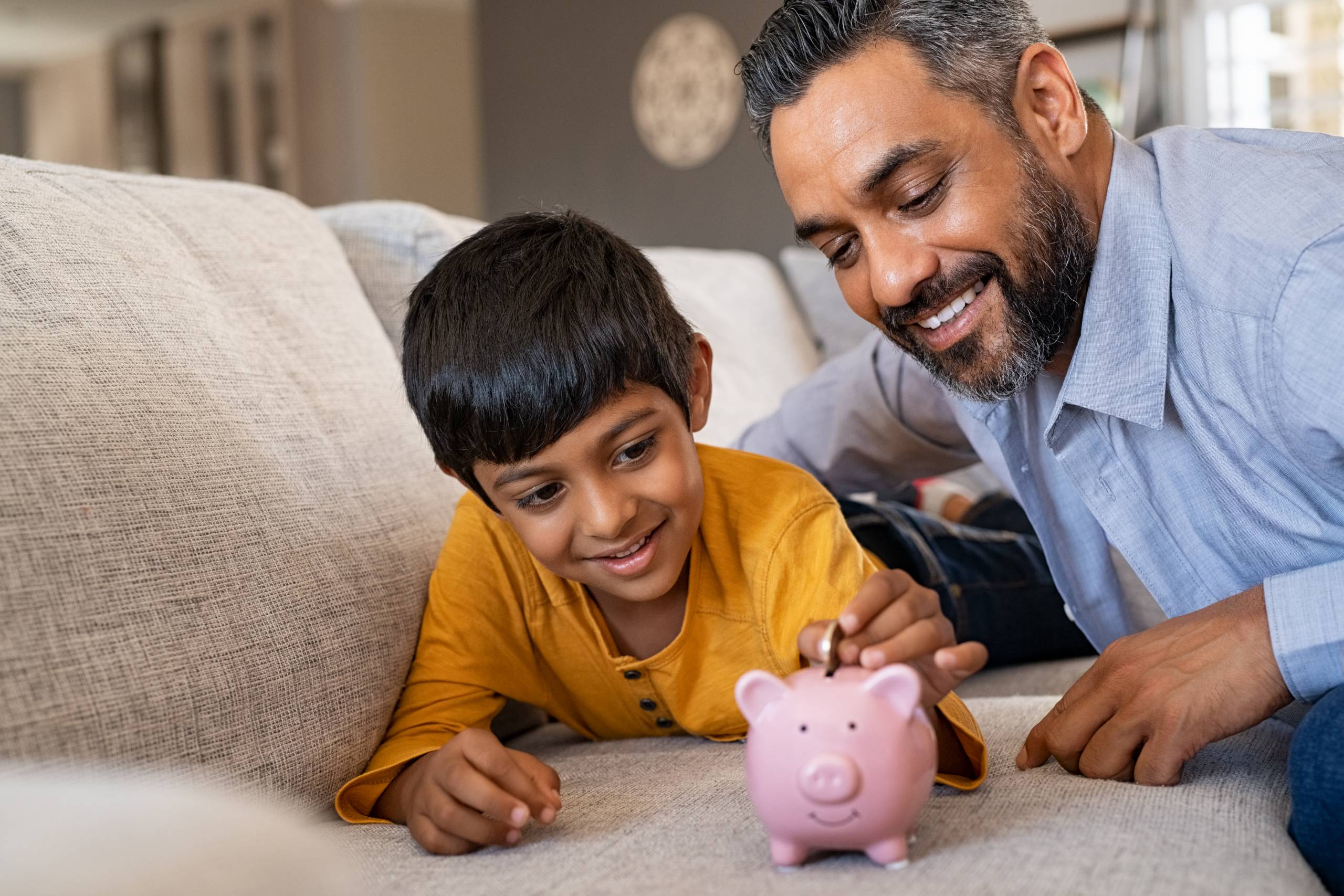It goes without saying that money represents a significant part of our lives. Managing it well is, in many cases, the key to a happy and successful adult life. However, the lessons on managing money do not need to start in adulthood. It is essential to pass on nuggets of wisdom to kids in their early lives to ensure they grow up to be money-smart.
As many as one in four children in the UK receive no lessons on money as kids and can find it difficult to handle financial matters when they grow up. The journey of financial literacy and teaching kids about investing and money starts with parents. It is never too early to start, and parents can start with kids as young as preschoolers to teach them about the value of money, saving, and even investing. Children as young as three are able to understand the concept of money and saving, while they can form long-lasting money habits by the age of seven.
It is critical to understand the difference between parents investing for their kids and kids learning to invest for themselves. Here, we will be dealing with how to teach your child about investing, its importance, and how you can raise money-smart kids.
How to teach kids about investing
Introduce the concepts of earning and spending
The first step towards teaching kids about investing is to make them aware of money, how it is earned, and how it needs to be spent judiciously. These early, fundamental lessons go a long way in raising money-smart kids, which, in turn, can help families deal with the high cost of raising kids.
For kids, the concept of money can start with coins. You can tell them about the value of coins and how they can be used. They can start by counting coins and knowing how many coins their toy costs. You can extrapolate this concept out to explain how money is earned, the hard work that goes behind bringing money home, and how much basic necessities can cost.
Allow them to earn money
Lessons learned with your own money are the best. Parents can help kids identify money-making opportunities and earn their own money through summer jobs and household chores (or the classic lemonade stand) and use that money as a valuable teaching tool. The children will appreciate the hard work behind earning money – they’ll also be more inclined to save their own hard-earned money than the money they receive from parents. The earned money can be saved or spent depending on the kids’ choice, keeping them informed about the pros and cons.
Teach saving, then investing
Before the kids start learning about investing money and growing it, they need to learn about saving money. Saving even a small amount regularly goes a long way. Savings for kids begin with piggy banks and move up to savings accounts and checking accounts. A transparent jar works better for kids to visually see their savings growing as they keep adding more and more to the jar. Parents can help them understand the importance of saving by setting a target. For instance, if a child wants a specific toy, parents can tell them how much the toy costs and how they can save up enough to buy it on their own.
At the same time, it is a great opportunity to teach kids about opportunity cost. Children can learn that they may need to give up some day-to-day pleasures to save for their favourite toy. It will help them to consider their choices, make decisions and be responsible for them.
Once the kids are old enough and understand the significance of saving, it is time to introduce the concept of investing. The earlier kids start learning the concept of compounding and how money can grow with investing, the better they will be able to manage their money in adulthood. Parents can introduce children to the different avenues of investing at an early age and allow them to explore for themselves as soon as they are old enough to understand the outcomes and repercussions. Children should be encouraged to plan and invest for long-term goals, including university fees, houses, and retirement as early as the teenage years (as fanciful as this may be!).
Play money-related games
Kids learn best when they are at play. Parents needn’t make lessons about money and investing too boring. Instead, they can involve young kids in money-related games, like board games, online games, and games created at home. Some TV and movies can also help parents impart financial knowledge to children and are more easily relatable for kids. Parents can set up pretend shops for kids to buy things, pay for them and get change, in addition to letting them know about how cheap or expensive things are.
Monopoly is another excellent game for young kids to learn about money. Parents can teach them how to buy only what they need, make the most of the money they have, invest and generate returns in the form of rental income for future, and keep growing their money. For slightly older kids, games like Money Bags and The Stock Exchange Game teach the basics while still keeping the excitement and fun alive. The games will help kids to engage with learning about money and becoming money-smart.
Lead by example
The next best thing to play is to provide an example for kids. They learn about money best when they are taught in a fun and friendly way. However, even before children start playing money-related games, they look up to their parents for indirect teaching. When parents make budgets, stick to them, save, invest, and manage their money well, children are watching them and learning.
So, it’s important to lead by example and follow money practises that you teach your kids and want them to follow. If you manage your finances well, avoid impulsive purchases, remain within budget, and plan ahead for future, you will set healthy examples for your kids to follow and become money-smart for the future.
As a bottom line, it is never too early or too late to start teaching kids about investing and money. Parents can give them a head start by introducing them to the financial world and then let them be. Kids can practice saving and investing, make mistakes, learn from their failures, and ultimately grow up be financially informed and secure. It is critical for them to learn about money and investing at a young age to avoid falling into the traps of credit, loans, and financial instability. Parents should make kids responsible enough to handle their finances wisely and grow up to be money-smart.





